From October 5 to 8, educational procurement professionals from across the New England region attended the annual National Association of Educational Procurement (NAEP) Conference. Held in Falmouth, MA, the event buzzed with collaboration, innovation, and new ideas aimed at shaping the future of procurement in education.
Team members from the UPST were among the attendees ready not just to learn, but to lead. They shared their groundbreaking journey of transformation and modernization, captivating audiences with both their vision and expertise.
A highlight of the conference was the presentation “UPST Launching into Change,” delivered by Sue Cone, Christine Escobedo, Amanda Gordon, Kelsey McCauley, and Anne Zuev. Together, they shared how UMass has transformed its procurement operations by unifying services across campuses into one streamlined department. With the adoption of AI-driven accounts payable and supplier onboarding, the team has greatly increased efficiency, accuracy, and consistency. The presentation highlighted key breakthroughs: standardized procedures, shifting Bank Card liability to the university to improve compliance, and proactive risk management strategies. The message was clear—UPST is building a scalable, future-ready procurement model that not only reduces costs but also minimizes risks and provides ongoing value.
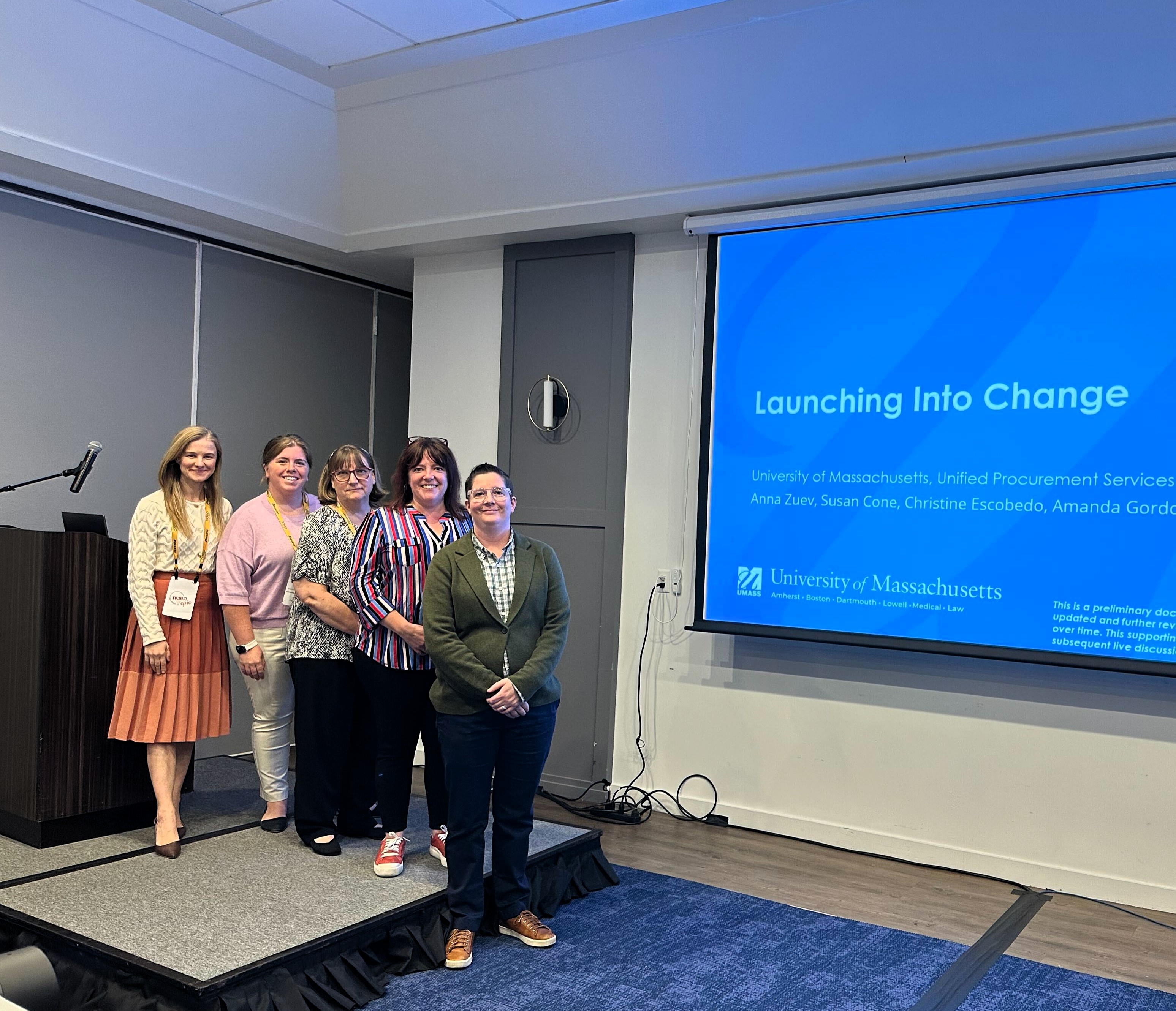
Meanwhile, Pam Giordano captured attention in two well-received sessions. In “Redlining Demystified: A Contract Specialist’s Guide,” Pam, donning her bright red blouse and handing out Red Vines and Twizzlers to emphasize redlining, skillfully navigated the often-intimidating world of contract redlines, sharing insider tips that left attendees better prepared to protect their organizations. In her workshop, “Play to Win – Crafting Your Contracts Playbook,” she led participants through the process of building a comprehensive contract playbook, equipping them with practical skills to review contracts with greater confidence. Pam was clearly in her element, energizing the room with her expertise and friendly style.
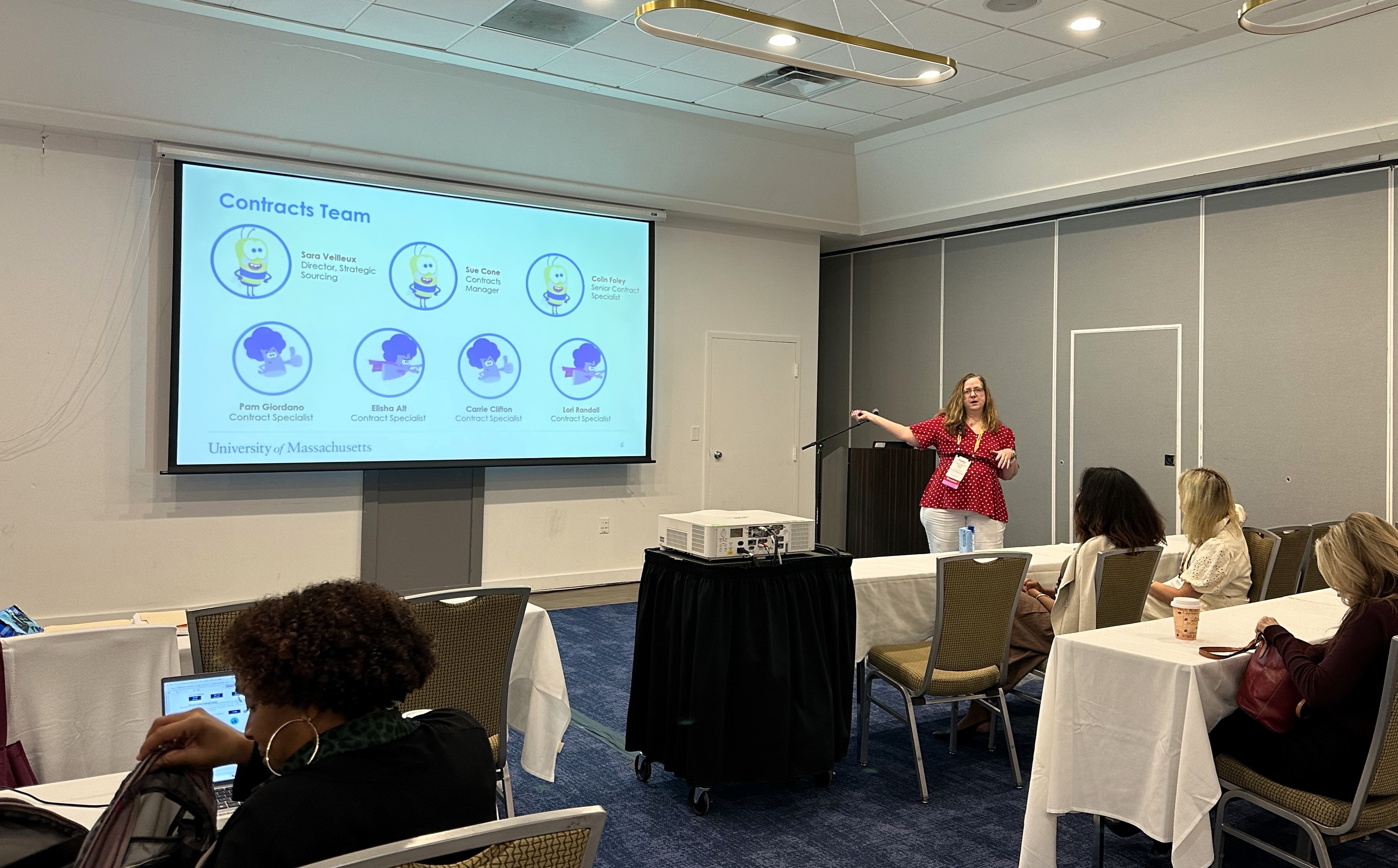
Bringing a collaborative spirit, Bill Mannix and Evanthia Tully teamed up with a colleague from Bridgewater State to present “Managing Your Procurement Spend: Two Common Methods and a Hybrid Approach.” The session highlighted procurement strategies from both institutions, such as Bridgewater’s department-centered model and UMass’s category management system. Through an interesting case study involving a UMass commencement portfolio management, the trio demonstrated how hybrid models can combine the best of both worlds for better fiscal management.
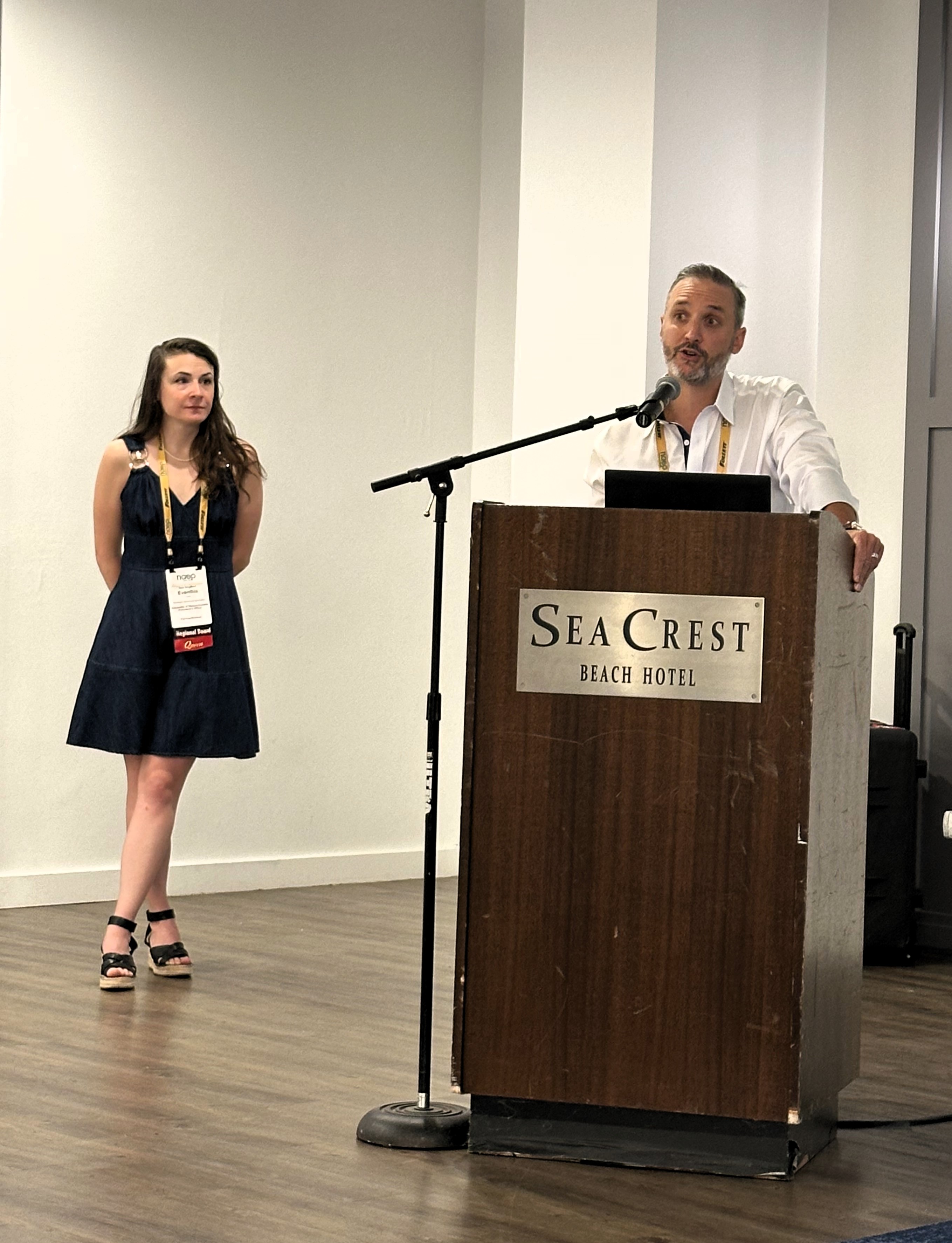
Adding to the lineup, Bill Mannix and Sara Veilleux partnered with a colleague from Northeastern University to present “Interviewing Best Practices: Insight from Both Sides of the Table.” This session offered practical advice for both job seekers and hiring managers, providing actionable takeaways to enhance interviewing success.
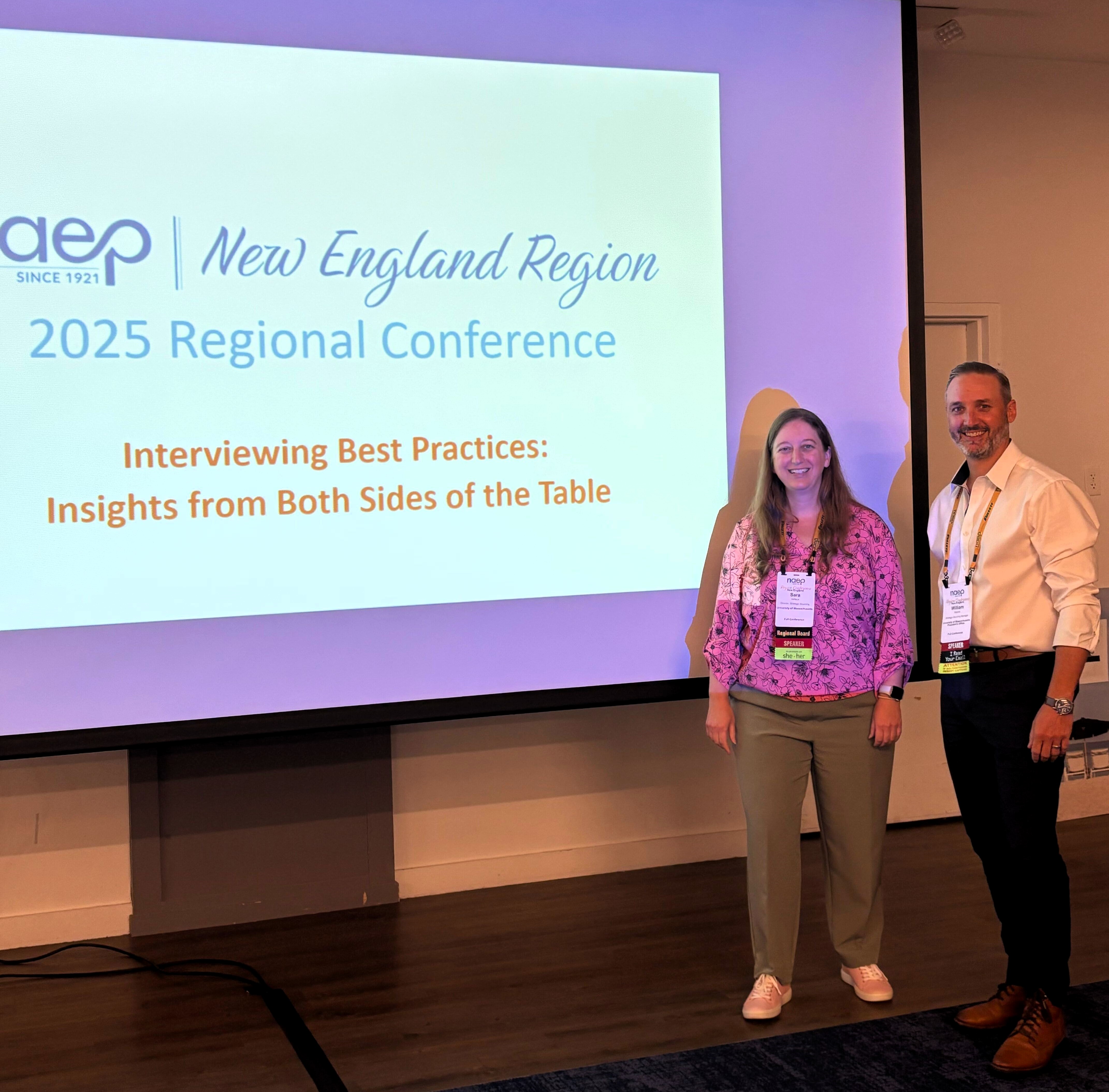
Michael Durkin attended the event not only to support his team but also to join other procurement leaders on a panel discussing the evolving landscape of higher education operations and how efficiency demands are at an all-time high. It’s a perfect opportunity for procurement organizations to drive transformational changes across campus operations. Mike was also awarded the Jake E. Bishop Meritorious Service Award for a lifetime of leadership, service to the higher education community in the New England region, and dedication to the field of educational procurement. Congratulation Mike!!
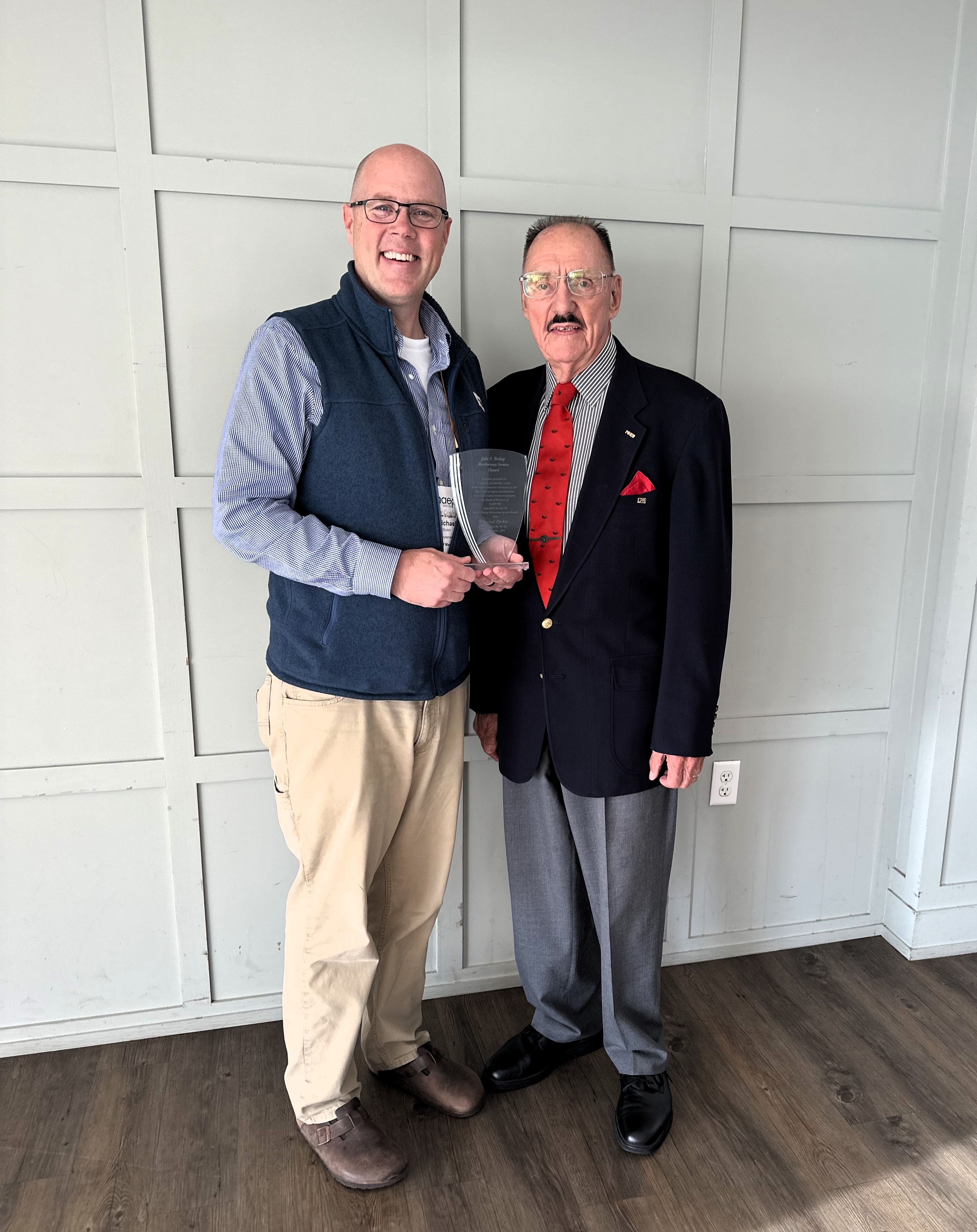
Yet, beyond delivering these presentations, UPST members eagerly absorbed knowledge from other sessions. A highlight was Jenny Morse’s Business Writing Keynote and Workshop, which challenged the team’s email habits and inspired them to improve their written professionalism, a subtle but powerful shift prompted by a few well-chosen words.
The NAEP New England Regional Conference proved to be a rich environment for growth, networking, and fostering change in educational procurement. For UPST, it was an opportunity not only to share their story but also to embrace new ideas that will shape their ongoing mission: making procurement better, faster, and more cost-effective for the university community.
